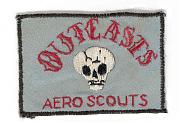Irregular Warfare: After Smart Weapons, Smart Soldiers - The Economist, 25 October.
... Can America and its Western allies avoid similar humiliation in Iraq and Afghanistan? Martin van Creveld, an Israeli military historian, argues that insurgencies have been almost impossible to defeat ever since Nazi Germany failed to suppress Josip Broz Tito's partisans in Yugoslavia. Winning such wars requires one of two tactics: extreme restraint and patience, as shown by the British over nearly 38 years in Northern Ireland; or extreme brutality, as shown by Syria in 1982 when the army destroyed much of Hama, a stronghold of Islamist rebels, killing at least 10,000 people. Any other method, says Mr van Creveld, risks being too harsh to win the support of the population but not harsh enough to cow it into submission.
This rule is too stark. Experts point to successes such as the end of the insurgency in El Salvador, the collapse of the Shining Path rebels in Peru, the end of the civil wars in Mozambique and Angola, the demise of the Red Brigades in Italy and of the Red Army Faction in Germany. Much of this debate revolves around the meaning of victory and defeat, as well as the definition of counter-insurgency, civil war, counter-terrorism and so on. One school of thought holds that America's forces had largely defeated the Vietcong in Vietnam when its politicians lost the will to stop North Vietnam's conventional army from overrunning the south. That is to miss the point: in counter-insurgency one side can win every battle, yet lose the war...








 . I just don't like mid-length articles. Their purpose is unclear. They are not a summary of the issues, they fail to explore issues in their entirety and most often fail to site anything to help the reader fill in the gaps. This unfortunately has become the trend/standard.
. I just don't like mid-length articles. Their purpose is unclear. They are not a summary of the issues, they fail to explore issues in their entirety and most often fail to site anything to help the reader fill in the gaps. This unfortunately has become the trend/standard.





Bookmarks